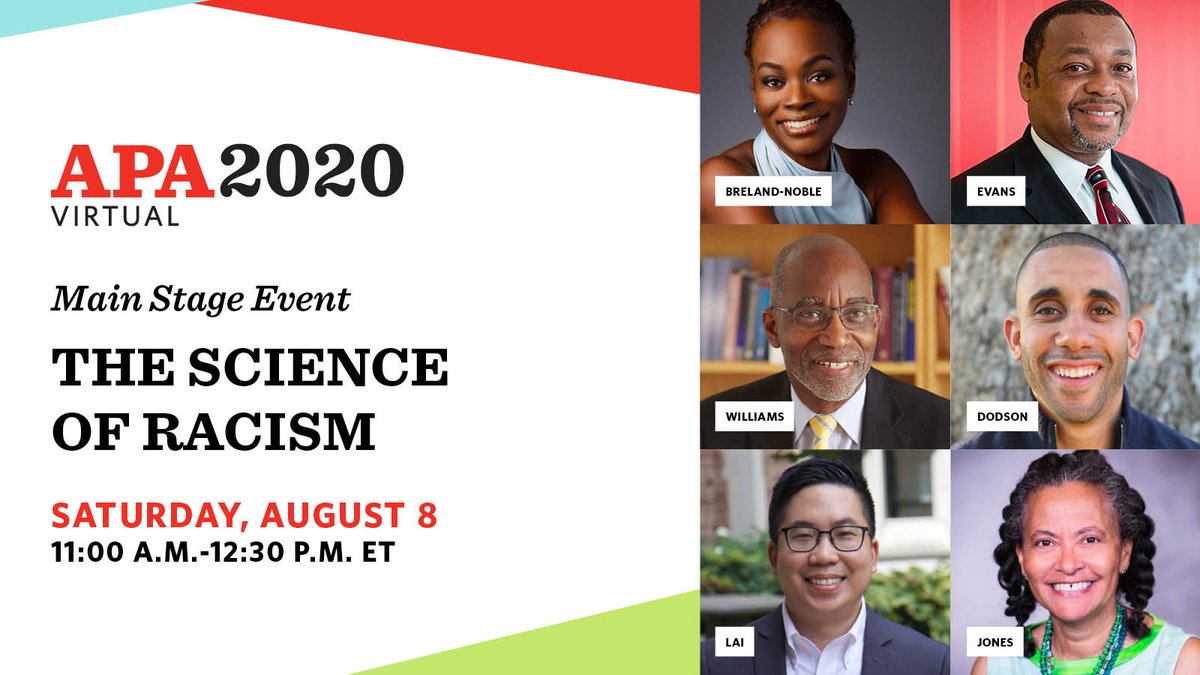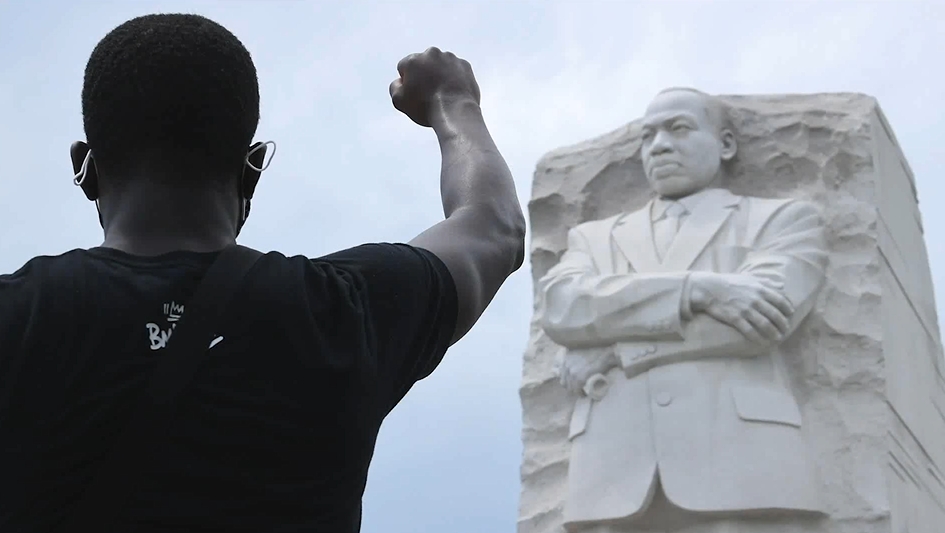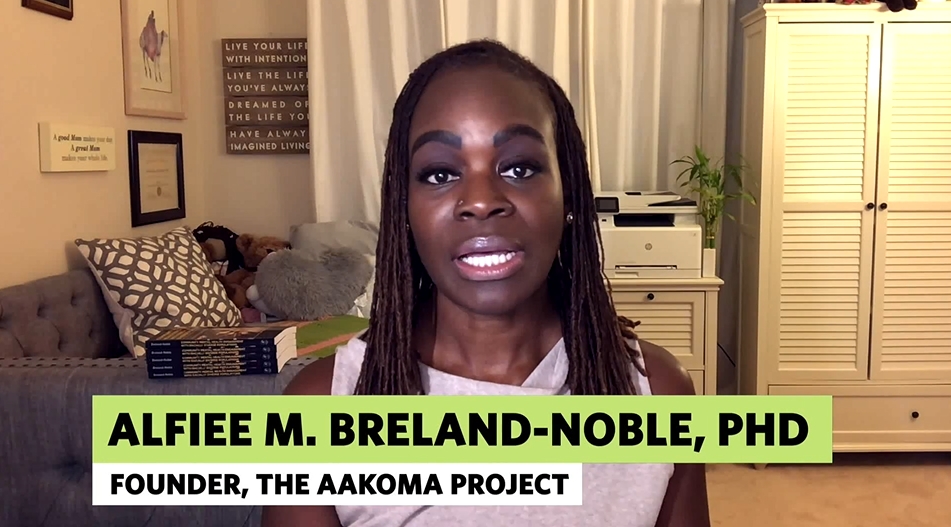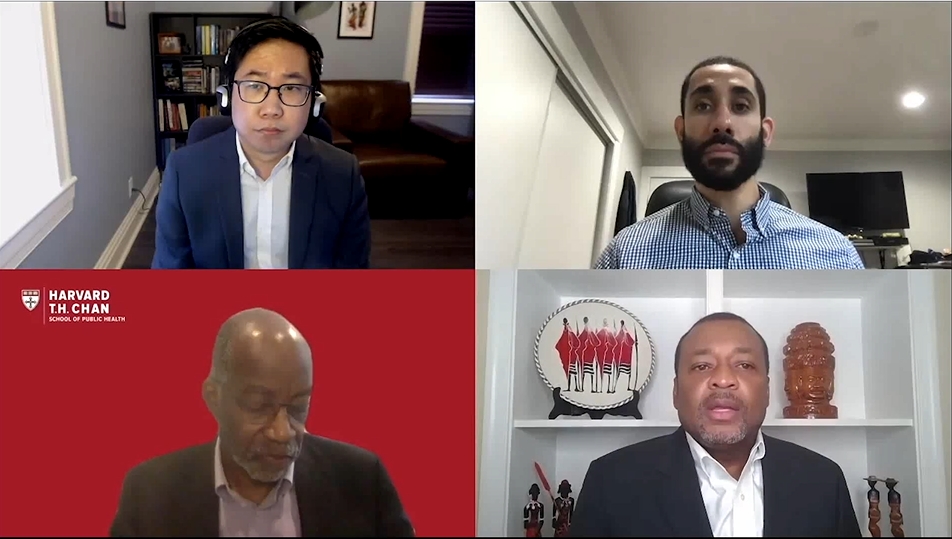Welcome to today’s #APA2020 Virtual main stage event, The Science of Racism, hosted by @lollybowean.
In 1967, Dr. Martin Luther King, Jr. took the podium at APA’s annual convention and asked psychologists to rise to the challenge of stopping racism and work toward a more equitable future. Have we met his call? #APA2020
“We’ve done a lot of writing and a lot of research, but not a lot of action. I believe that image of seeing George Floyd with that knee on his neck made my white friends and colleagues begin to understand what Dr. King was calling on us to do.” -- 2019 APA President @TigerBingham
“I find myself often thinking if science can be misused to affirm white supremacy, can it also be used to right that wrong? Can we lean on science and research as a tool to combat racism and eliminate its harmful residue?” -- @lollybowean #APA2020
“Now, many of us are declaring ourselves anti-racist. We are reading the books, we are adopting the language, but what will it really take to get us to equity and equality?” -- @lollybowean #APA2020
Our first speaker, @dralfiee, founded the @AAKOMAProject to help diverse teenagers and their families achieve optimal mental health. Today she joins us to discuss the importance of culturally-relevant science. #APA2020
“There’s a message that I always share with people - and that message is that I wish you lots of love, lots of light, and I hope both are always informed by good culturally-relevant science.” -- @dralfiee #APA2020
. @dralfiee: How do we move closer to social justice for all of us? By “calling a thing a thing”. We have to acknowledge that racism is real and that it is a part of the lived experience of many people of color. #APA2020
“There were many years in my career where racial trauma and racial stressors were not concepts we talked about. But there were people who continued to do the work, even though they had to do it in the shadows, sometimes where they couldn’t get it published.” -- @dralfiee #APA2020
“Culturally relevant science doesn’t just happen, it is something that we have to engage in in an active and strategic way.” -- @dralfiee #APA2020
“Through our work with the @AAKOMAProject, we work actively with young people, we work actively with community advocates. Because at the end of the day, the people who are going to inform you the best are the people who have those lived experiences.” -- @dralfiee #APA2020
“What I want to wish for you is something that I always wish as I close — I want to wish you lots of love, I want to wish you lots of light, and I always hope that both of those are informed by good, culturally-relevant science.” -- @dralfiee #APA2020
Next up we have a panel conversation led by APA CEO @ArthurCEvans. Welcome @PhDodson, @CalvinKLai, and @D_R_Williams1 to the #APA2020 Virtual Main Stage!
“Over fifty years ago, Martin Luther King challenged psychologists to tell it like it is, to help change a society poisoned to its soul by racism. The question is for us, fifty years later - have we done that? How can we do that?” -- @ArthurCEvans #APA2020
. @ArthurCEvans: What do we know from psychological research that the public may not know or understand as we address issues of race and racism? #APA2020
“There are more than 100 published studies of everyday discrimination and health. Higher levels of discrimination leads to depressive and anxiety symptoms, DSM-defined psychiatric disorders, and a broad range of negative physical health outcomes.” -- @D_R_Williams1 #APA2020
“We have a responsibility to raise awareness levels, to let others know the weight of the evidence, and how important it is as a society to address racism in order to improve the health of all.” -- @D_R_Williams1 #APA2020
. @CalvinKLai: Research shows that hidden, spontaneous, or maybe even unconscious biases pervade how we treat others on the basis of race. So one “obvious solution” is maybe we could reduce the underlying biases directly. Studies show that’s actually hard to do. #APA2020
“Given that it’s difficult to dislodge these implicit biases, research shows the most effective approaches are interventions that can prevent or circumvent the influence of implicit bias on behavior.” -- @CalvinKLai #APA2020
“Building relationships with community members and organizations is the key to sharing psychological science. The easiest way to do that, before I bring in the research and the findings, is to just listen.” -- @PhDodson #APA2020
. @ArthurCEvans: In twenty years of policy work, I often saw colleagues in the government struggling with issues for which there was already a body of knowledge. How can we connect that knowledge with people working on these issues? #APA2020
“We need to communicate the urgency with which we need to approach the topic of racism and its effects on health. It’s not just ‘sticks and stones may break my bones’, it’s really hurting us and killing people prematurely.” -- @D_R_Williams1 #APA2020
“Research shows that Black children are three times more likely than White children in America to lose a mother by age 10. Black adults are twice as likely compared to White adults to lose a child by age 30, and a spouse by age 60.” -- @D_R_Williams1 #APA2020
. @CalvinKLai: One of the challenges is this phenomenon called the bias blind spot...even when people are educated about biases their impulse is to think they are “above average” at being unbiased. Statistically, that’s not possible. #APA2020
. @CalvinKLai: One of the things I would recommend to any administrator is to track very specifically where the inequalities are within your organization. This tells you where to focus your energy and makes it so you can’t just sit in your bias blind spot. #APA2020
“We need to have very real and authentic conversations with folks outside the field saying that colorblind racial approaches and colorblind racial attitudes are having a very real impact on health and are literally killing people.” -- @PhDodson #APA2020
“It’s really important to normalize that multiculturalism in conversations about social justice is not a destination to arrive at, but something that needs to be woven into all conversations and into the beautiful tapestry that is humanity.” -- @PhDodson #APA2020
“Organizations like APA, like universities, need to raise awareness levels. Most Americans are unaware of the degree of racial inequities that exist in health and in other domains.” -- @D_R_Williams1 #APA2020
“For every dollar of household income White households receive in the U.S., Black households earn 59 cents. That is identical to the racial gap in income in 1978. Most of my students think we’ve made much more remarkable progress.” -- @D_R_Williams1 #APA2020
“Raising awareness and changing levels of empathy is a prerequisite to effective systemic change. What we are seeing over the past ten years is evidence of attitudinal changes that coincide with the rise of the #BlackLivesMatter  movement here in the U.S.” -- @CalvinKLai #APA2020
movement here in the U.S.” -- @CalvinKLai #APA2020
 movement here in the U.S.” -- @CalvinKLai #APA2020
movement here in the U.S.” -- @CalvinKLai #APA2020

 Read on Twitter
Read on Twitter





